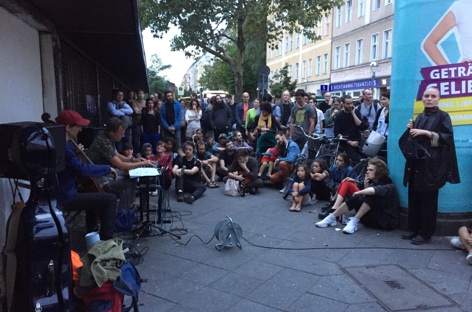Published
Fri, Aug 31, 2018, 19:32
- The Initiative für Neue Musik Berlin staged a protest concert last Friday at Hermannstraße S-Bahn.

Deutsche Bahn has scuttled plans to drive off homeless people and drug users by playing atonal music at stations.
The railway recently announced plans to play atonal music at "focus stations" like Hermannstraße as part of a larger plan to make stations safer. The plan has been abandoned after widespread criticism, as well as a protest concert organized by the Initiative für Neue Musik Berlin e.V (Initiative for New Music, INM).
Last Friday's protest included Mathis Mayr and Ernst Surberg's rendition of Joanna Bailie's "Trains" for cello and synthesizer, as well as a performance from Estonian-American vocalist Sirje Viise, who led off the event with "Prelude To The Holy Presence Of Joan D’Arc," by Julius Eastman, a now-venerated composer who died in 1990 after living on the street for years.
The INM's Lisa Benjes said her organization acts as an advocacy group for new music and takes exception to the "classist" idea of experimental music being used to drive off transient populations. In an op-ed piece for The Guardian, Benjes writes, "Art shouldn't be weaponised against people. Atonal music was one of the musical forms classified as Entartete Musik—degenerate music�—by the Nazis and forbidden. After the second world war, a young generation of composers—led by Stockhausen, Boulez and Nono—tried to write in a way that had no link to the Nazi regime, and turned to atonal music. Knowing that makes it all the more problematic to use this music to exclude people from public life."
Friedemann Keßler, DB's regional director for Berlin, was one of the attendees at last week's concert. While he was quoted in the Tagesspiegel as saying that few people find atonal music beautiful, his opinion changed following the performances, when he "expressed his admiration for the virtuosity of the performers and the organizers' expertise on the subject," reports KCRW Berlin. DB abandoned plans to use sound in its efforts to improve stations following the protest.